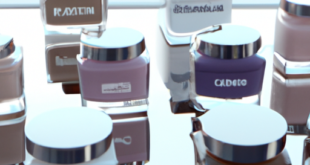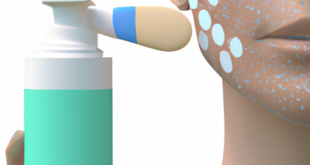Retinol, a derivative of vitamin A, has long been celebrated in the skincare industry for its transformative effects on the skin. Known for its ability to promote cell turnover and enhance collagen production, retinol is a powerful ingredient that addresses a wide range of skin concerns, from acne to aging.
What is Retinol?
Retinol is a type of retinoid, which are compounds derived from vitamin A. It is commonly found in over-the-counter skincare products and is renowned for its ability to improve skin texture, tone, and pigmentation. Retinol works by penetrating the skin and accelerating cell turnover, which helps to unclog pores, reduce the appearance of fine lines and wrinkles, and even out skin tone.
Benefits of Retinol
- Anti-aging: Retinol is widely acclaimed for its anti-aging properties. It stimulates collagen production, which helps to reduce the appearance of fine lines and wrinkles, resulting in firmer, more youthful-looking skin.
- Acne Treatment: Retinol can be effective in treating acne by preventing dead skin cells from clogging pores. Its exfoliating properties help clear existing breakouts and prevent new ones from forming.
- Improved Skin Texture: With regular use, retinol can smooth skin texture by promoting the shedding of dead skin cells and the growth of new ones.
- Even Skin Tone: Retinol can help fade hyperpigmentation and dark spots, leading to a more even and radiant skin tone.
How to Use Retinol
When introducing retinol into your skincare routine, it’s important to start slowly to avoid irritation. Begin by applying a pea-sized amount to clean, dry skin once or twice a week, gradually increasing the frequency as your skin builds tolerance. Always follow up with a moisturizer to minimize dryness and flaking.
Potential Side Effects
While retinol is effective, it can also cause side effects, particularly if used incorrectly. Common issues include dryness, redness, peeling, and increased sensitivity to sunlight. To mitigate these effects, it’s crucial to use sunscreen daily and to start with a lower concentration of retinol.
Who Should Avoid Retinol?
Certain individuals should approach retinol with caution or avoid it altogether. Pregnant or breastfeeding women are advised to avoid retinol due to potential risks associated with vitamin A derivatives. Those with extremely sensitive skin or conditions like rosacea may also find retinol too harsh.
Conclusion
Retinol is a potent skincare ingredient that offers numerous benefits, from reducing the signs of aging to treating acne and improving skin texture. However, its effectiveness depends on proper usage and patience. By starting slowly and incorporating it into a well-rounded skincare routine, many can enjoy the benefits of retinol while minimizing potential side effects. As with any skincare product, consulting with a dermatologist can help determine if retinol is the right choice for your skin type and concerns.
 the info way beauty Secrets and expert tips on skincare
the info way beauty Secrets and expert tips on skincare


